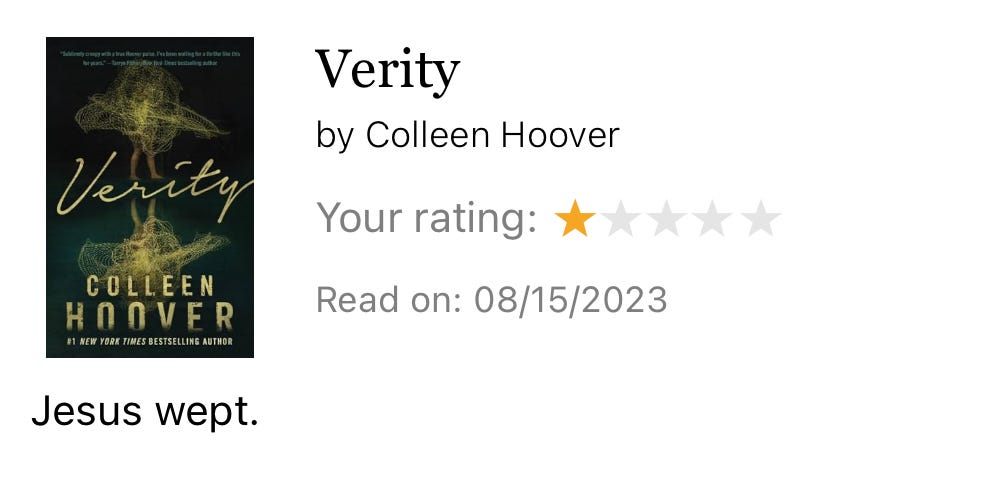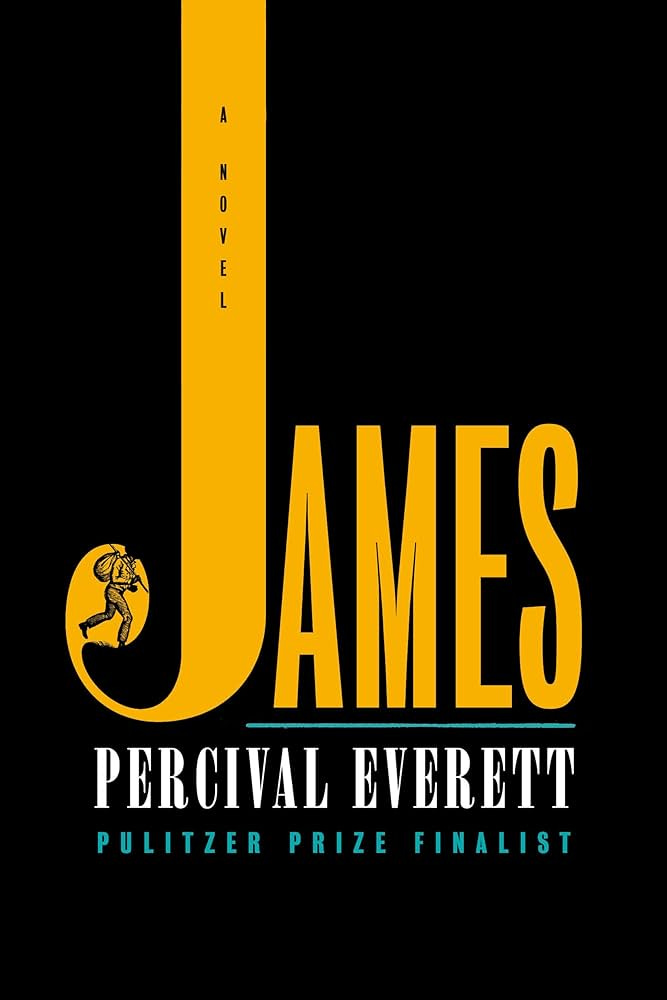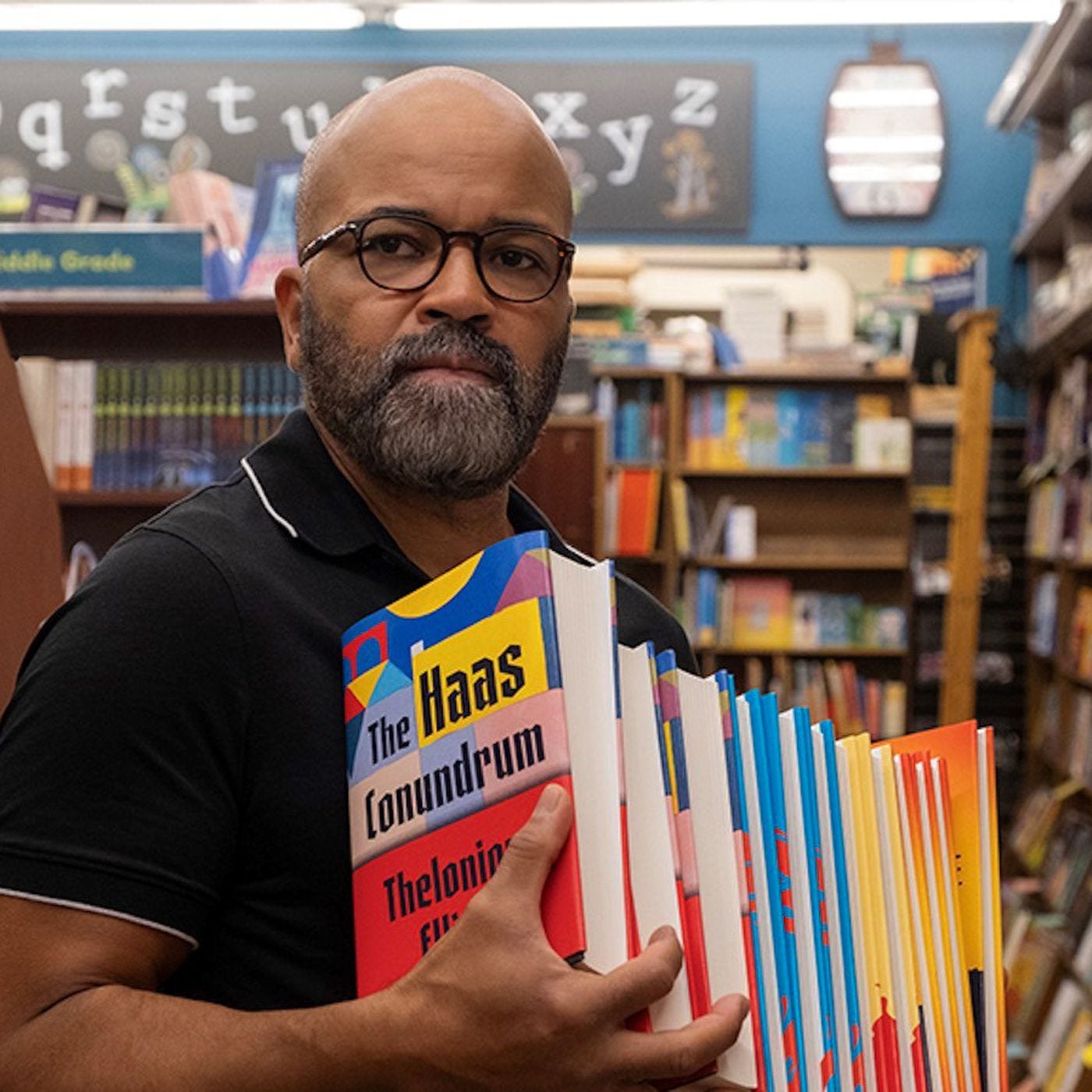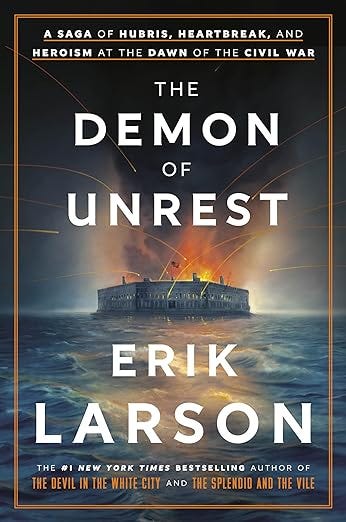The screen I spend the most time with these days is a black LCD monitor attached to a PC in an indie bookshop on Long Island. I spend whole days looking at point-of-sale software called Anthology which also keeps track of the store’s inventory. Often, it’s accurate. Occasionally, it says we have three copies of The Bell Jar that have simply disappeared from the face of the Earth. No one stole them. They were raptured, like socks that never make it out of the dryer.
If you’ve never worked a retail job, let me tell you what it’s like: you come in with a little spring in your step, caffeinated, and ready to greet your coworkers and update them on how terrible your last shift without them was. Though the memory of the previous shift’s slog might give you a little anxiety, and though a hangover can make your fuse a little short, you’re in a better mood at the start of the day than at the end. Tedious tasks like ordering and unboxing books (sci-fi movies did not prepare me for how much cardboard there would be in the future) seem manageable in the morning. Customers seem kind. The items you’re selling feel necessary to human happiness. Whatever is going on in your life is put on pause to manage store operations, and time flies. Then, by 3 PM, whether you had time for lunch or not, you wish you had done anything else with your day — or, better yet — your life.
While the back-straining work of moving inventory around the store or walking the floor helping customers all day without a second to sit down might make you physically tired, the real work of retail is mental and forces employees to become part-machine. Retail workers have to ask the same three questions (“Rewards?” “Bag?” “Receipt?”) and reply to the same three questions (“Have it?” “Bathroom?” “Manager?!?!?”) for 8-10 of their most worthwhile waking hours.
“You must either make a tool of the creature or a man of him. You cannot make both. Men were not intended to work with the accuracy of tools, to be precise and perfect in all their actions. If you will have that precision out of them, and make their fingers measure degrees like cog-wheels, and their arms strike curves like compasses, you must unhumanize them. All the energy of their spirits must be given to make cogs and compasses of themselves.” -John Ruskin
In bookstores, there is the added expectation that while you’re participating in this mind-numbing routine, you’re at least able to pretend to like and engage with literature. I'm not arguing that people working at Old Navy aren’t eloquent or as over-educated for their job as I am. If they aren’t teenagers, most retail employees I’ve encountered have, by virtue of talking to coworkers and customers all day, the same high emotional intelligence as the smartest people I know who chain smoke outside bars. Still, my guess is that it’s rare for a customer to see a clothing store employee folding clothes, and think “I wonder what their opinion is of the latest Ann Patchett book” or “I wonder if they read Knausgård and run a book club when they’re not helping me find jeans in my size.” People see booksellers doing the same tedious tasks as any other retail employee and assume they not only possess unlimited knowledge about the state of publishing but also have unlimited hours to read while in the store. Customers hold booksellers to an impossible intellectual standard. When they fail to live up to said standard, they’re subjected to conversations like this:
“You haven’t read the latest Kingsolver?” a customer will ask, “Why not? What about this one? Or that one? It’s so good though! I thought you would have read all of these!”
What’s a shame is that they think they’re being kind when they half-recommend, half-admonish bookstore employees. Worse are the people who are flat-out rude. Case in point, a man came into the store at hour six of my shift, and without any preamble, treating me like I was a human Google search bar, said the name of an author, then started spelling the name. When I asked for a second to look up what I assumed he was asking for, he rolled his eyes and began spelling slowly and loudly: “PAUL. P…A…U…”
Sadly, I’m too old to be treated that way and without thinking I raised my hand and said sternly “Don’t do that.” Now some oblivious retired banker is walking around Long Island asking himself why indie booksellers are so mean. My Midwestern niceness has disappeared, my helpful attitude is now nonexistent. I have been worn down by the people I’m paid to be kind to.
It’s hard to tell customers that after working an 8-hour shift, where you haven’t been given a second for your own thoughts nor a chance to sit, you don’t have much time to read. Nearly every bookseller I know (and I wonder if this is true for all of retail) is more food-obsessed than book-obsessed. It makes sense. You barely take breaks, you’re stressed out, and you're surrounded by cookbooks with big gorgeous photos of food on the covers. The other day, I watched my coworkers Chloe and Claire go through each page of Molly Baz’s More Is More and say “yes” “hard agree" “sexy” etc. until they reached the end of the book. You’re not supposed to grocery shop when you’re hungry, but you also shouldn’t look at complicated recipes when you’re exhausted at work. You’ll feel like you want to go home and spend an hour cooking a roasted vegetable tart, but I promise, you’re going to want to do nothing. Save it for the weekend. If we get only a few hours at night to read, and our weekends are spent making elaborate recipes, how are we supposed to stay on top of every new release?
Better question: regardless of how we spend our precious few hours of reading time, how will our personal taste in books sync up with our clientele’s? A single title, Colleen Hoover’s Verity, kept the store afloat for a year, and when I took the time to read it, I found it was… not my cup of tea.
I’ve been surprised by how many customers buy Elif Batuman’s The Idiot, a niche piece of autofiction about a woman’s first year at Harvard, but that book is the exception that proves the rule. Mostly, the people who come to our store want Romance novels, Thrillers, and presidential biographies. That is to say, our customer base skews a little older and is a little… homogenous.
I made the mistake of forgetting I was no longer in Brooklyn when I announced to a customer that I loved James by Percival Everett, a reimagining of Mark Twain’s Adventures of Huckleberry Finn told through the voice of Jim. In James, the titular character can read and write. He speaks in an entirely different voice in private among his friends and family than the vernacular he wears like a costume when others whom he does not trust are around. The novel feels contemporary and critical of the original text while still revering it. Most importantly, like Twain’s original novel, there’s a lot of humor in it.
“But it’s fantastic!” I told the woman standing at the counter who was returning the book unread. It was fifteen minutes until my shift ended, and I was sitting on a short stool on the floor, hurriedly spooning soup into my mouth. “It’s funny too. If you think black people expressing their honest resentment of white people is funny.”
She wrinkled her face, and as she walked out the door she said earnestly: “No, I don’t think that’s funny, and frankly…I’m sick of it.”
The first bookstore I worked in was the Barnes & Noble in the newly-constructed Crocker Park in Westlake, Ohio, the affluent Cleveland suburb where Jake and Logan Paul spent their hardscrabble youth. Where there had once been a long single-story strip mall with maroon awnings and a parking lot for roughly 6,000 cars, there was now an outdoor mall that resembled a city center, complete with apartments above the H&M, Yankee Candle, and Coach stores. The buildings appeared to be made out of white stone or brick and had bay windows jutting out the sides to make you feel like you were in San Francisco if San Francisco’s main attraction was The Cheesecake Factory. Crocker Park was a planned city, like Saint Petersburg, except it was built on what was once a cornfield instead of a swamp full of human bones. Still, commuting from Cleveland out to that inorganically manufactured suburban “town” made me feel gross and oddly fraudulent. Did I mention I was 19, and had read Dostoevsky’s Notes from Underground for the first time that year? The grossness wasn’t because the place was built on rot, but its opposite: a blank canvas, flat asphalt and fields. I imagined Crocker Park was tantamount to what they built for the Chicago World’s Fair that I read about in The Devil in The White City. A massive space for people to gather not to celebrate technological innovation, but to buy name-brand clothes and eat too much pasta for lunch. Crocker Park was Ohio’s Gilded Age made manifest: a giant shopping center for the nice sober rich families built a few miles from where opioids took off as the hobby of choice for many.
Every morning of my 5-week winter break from college, I schlepped the 30 minutes from my house in Cleveland out to the burbs, paid to park with quarters in lieu of any employee parking (fuck you, Crocker Park!!), and, since I was on the lowest rung of the staff ladder, a seasonal hire, worked the cash register for the entirety of my 8-hour shifts.
Barnes & Noble bookstores are regimented workplaces. If you’re shelving, you’re a shelver that day. If you’re in Customer Service, you’re standing at the front desk or walking the floor with customers, if you’re the DVD register guy, you’re stuck on the second floor alone with the DVD section register, with no other employees or managers to keep you company. The only time I talked to the DVD register guy was when I used the extra computer on his counter reserved for employees to clock in and out. The monitor was adjacent to the break room, a dingy office with tube lighting and four janky tables that I refused to eat lunch on because the room was such a bummer. I spent my lunch breaks in the Starbucks cafe talking to my friend Bridget, both of us waiting out the clock until we could go back to school with our hoards of winter break beer money. You were required to take a 45-minute (unpaid) lunch break, and another 15-minute break later in the day (also unpaid). We were part of the machinery there, drones who counted change or put books in alphabetical order, and if you weren’t working the Customer Service desk, you rarely had to use your brain or even carry on a normal conversation with anyone. Occasionally, though, we chatted:
“I’ve got a riddle for you to solve.” The DVD guy said. The phrasing to me was funny because he sort of looked like a bridge troll who would ask questions before he let you cross said bridge.
“Shoot.” I said.
“There’s a guy who comes in every day,” he said, putting his hands up as if he were holding an invisible stack of movies, “he buys a bunch of box sets here at my register, then goes to your register downstairs and returns them all and gets his money back.”
“Hmm.” I said.
“It’s gotta be a scam but I can’t figure it out.”
“Some people are weird.” I shrugged and finished clocking out. I watched him take in my opinion, adjust his glasses, and toy with his lanyard that served as his wallet. We never figured it out.
When there was the expected post-holiday lull and the store made less than $15,000 by 3 PM, my manager would ask me to go home early. That’s how regimented the store was! I got furloughed midday if they didn’t make 20k before my second break!
The worst days were spent entirely at that front counter. I would see my name next to two 4-hour blocks labeled “Cash Register” and could feel myself start to cry. No flipping through a book or two while shelving, no questions from customers that weren’t about returns. Nothing but counting change and asking if the person directly in front of you wanted to spend $25 on a membership card when they were in a hurry to leave (“It almost pays for itself today! Haha. Anyway, please kill me!”). By the 20th customer, I’d said the same words so often that they’d lost all meaning. I no longer tried to do any math in my head because I trusted the screen more than I trusted my weary brain. I felt like an idiot every time I clicked the wrong button and couldn’t remember a dollar minus 65 cents is 35 cents, and I felt like crying again. This little mental slip wouldn’t be so bad if I didn’t feel like I was on stage while an audience of one watched: a customer who also can’t believe how dumb I am.
After weeks at the front counter, my days spent in the back doing returns were a joy.
There was a 50-something guy named Neil in the backroom who wore white button-downs tucked into brown Banana Republic dress pants. Between his style, glasses, and hair, Neil looked like the retail employee version of Bill Gates. Scratch that. Bill Gates already looks like he works retail. Unlike Bill Gates, though, Neil was perpetually surly. He rarely talked to me. My manager showed me how to do the returns properly, and set up a workstation for me at a table on the other side of the room, facing away from Neil.
Returns are fun. You Tetris as many books as will fit in a wide cardboard box, fill the empty spaces with packing peanuts, tape it up, label it, and put it on a different table. Compared to dealing with impatient customers, the backroom was a dream, even if the decor felt like the inside of a Home Depot. No quotas to meet for the membership program, no stress of a long line forming at the front of the store because you forgot how to do basic arithmetic. No one was even checking how many boxes got done at the end of the day, unlike working the register where a manager took you into a small closet with a safe inside and counted your cash in front of you. No matter how diligent you thought you had been, it always came out roughly 17 cents short. More than a dollar, a meeting would be called.
Aside from a few grunts in response to my likely too-chipper morning hellos, Neil only asked me one question every morning: “What do you want to listen to?”
Because he was the first line of defense when it came to receiving inventory, Neil had dibs on the corporate-approved CDs the store was allowed to play. He sampled each on a small battery-powered boombox that rested on the table where he unloaded books.
I chose The Shins Wincing The Night Away followed by the original motion picture soundtrack to Dreamgirls (2006). It was a good day.
By the time we were done listening, it was time for my lunch break. I took the escalator upstairs and handed off the CDs to the DVD guy who promptly put them in a five-disc player that fed into the loudspeaker for the entire store to enjoy. Those days in the backroom were the only enjoyable days I experienced at Barnes and Noble.
A few days later, after Jennifer Hudson singing “And I Am Telling You I’m Not Going” had become meaningless background noise in my head, I found myself standing at the front counter again, robotically asking each customer if they wanted a membership while scanning a week’s salary worth of baby books for them.
After saying “have a nice day- I can help who’s next” for the fiftieth time, a lady with short gray hair marched up to my station and put her purse on the counter where a book should have gone. She pointed a finger at my chest.
“I want to lodge a formal complaint.” she said.
“OK.” I replied.
“The music being played in this store is frankly disgusting.” She raised her eyebrows and gave me an expectant look as if she assumed I’d agree and was simply waiting for a brave hero to say the words out loud and save me from the poisonous sounds, to take me out of the store, out of this life, and help me join my rightful place in a seminary school.
“OK.” I said again blankly.
“It’s the filthiest thing I’ve ever heard!” she shouted.
I closed my eyes and strained to hear what was playing. Dreamgirls. I ran through the entire movie in my head. The song “Move” must have been playing. That’s the only dirty lyric I could think of: “I feel just like the Titanic/ I’m always going down, down, down, down.”
In hindsight, I should have just apologized or at least acted like I shared her distaste. Instead, I looked at her with the same smart-ass scrunched De Niro face I gave my idiot friends when they said something like “I’m actually a better driver when I’m blackout drunk because I’m more careful.” A look that said Hmm. Really? You decided to say that to another person?
“Well, I’ll see what I can do about that.” I said unconvincingly.
She rested her elbow on her purse and brought her finger closer until it was nearly grazing my sweater.
“I want you to tell your manager to change this music.”
“OK.” I said, sighing, “I’ll make sure they put on something whiter for you.”
Was that, for lack of a better word, helpful? Probably not. She likely didn’t mean anything by it other than the words made her feel icky. I shouldn’t have judged her, and whatever lesson I wanted her to learn at that moment, she probably was going to spend rejecting in her mind over the next few weeks if not for the rest of her life. I was lucky I wasn’t fired. My manager gave me a “I know you’re going back to school soon, but c’mon, man.”
I’m not a crusader against every injustice in America nor am I the right person for that crusade. I’ve been to protests, slammed racist policies publicly, and volunteered in a prison, but I’m also a white comedian who, according to Isabel Wilkerson's The Warmth of Other Suns, grew up in the third-most “hypersegregated” city in America, right behind Chicago and Detroit.
“Hypersegregation, a kind of separation of the races that was so total and complete that blacks and whites rarely intersected outside of work.” The Warmth of Other Suns (p. 521)
There’s no way to grow up in a place like that and not notice your own biases. I do, however, feel like I know how to spot a person who lives in a bubble, who excludes people from their life intentionally or unintentionally, and I fear I am becoming one of them.
I now live 10 miles away from Levittown on Long Island, the first modern American planned suburb (the Saint Petersburg of white flight, if you will). While Long Island is more diverse than most people probably imagine, it has…issues. My friend group dwindles every year, and ever since I left Cleveland, that friend group feels less and less diverse. I spent time this week relishing videos of a lawyer and activist pillorying Eric Adams on The Breakfast Club while forgetting that he’s no longer my mayor. While sharing every video on Twitter, I felt like I was eavesdropping on a conversation. I thought: is it my place to even have an opinion on crime in the subway now that I’m another Bridge and Tunnel asshole?
I worry every time I take the train or drive East from Manhattan, I’ll become more and more like the lead character in Fleishman Is In Trouble. A person who knows what kind of people live out here but resigns himself to living among them. In that novel, the main character is thinking about the Hamptons, but I still think it applies to much of my new community:
“It was all such an insult, the Hamptons. It was an insult to economic disparity. It was an insult to leading a good life and asking hard questions about what one should sacrifice in the name of decency. It was an insult to having enough—to knowing that there was such a thing as enough. Inside those houses weren’t altruistic, good people whom fortune had smiled down on in exchange for their kind acts and good works. No, inside those columned, great-lawned homes were pirates for whom there was never enough. There was never enough money, goods, clothing, safety, security, club memberships, bottles of old wine. There was not a number at which anyone said, “I have a good life. I’d like to see if I can help someone else have a good life.” These were criminals—yes, most of them were real, live criminals.” -Brodesser-Akner, Fleishman Is in Trouble (p. 105)
All of this is to say that I feel like a fraud now when I praise black art. In particular, I loved American Fiction. It’s based on another Percival Everett book called Erasure, and it’s explicitly concerned with a black author’s issues with the publishing industry and how white people herald “authentic” black writers. I’m in an odd bind where I find myself reading Everett’s James and watching movies like American Fiction or Sorry To Bother You and pretending I totally “get it” when at times it’s mocking the white people who say stuff like “I get it.” My question is: are these works for me to enjoy? Do I like it because I want to feel like I “get it” in the first place?
The answers are “Yes” and “Who cares, it’s a movie.” American Fiction is up there with Sideways for great films about sad authors finding themselves later in life, and if you put aside the nuanced wrestling with art/commerce/race, it’s simply a great story about a fucked up family.
Whenever I feel I’m overthinking this fraudulence, when I think I should “stay in my lane,” I will see morons on Twitter publicly state that the bridge collapse in Baltimore was a result of the city having a black mayor (he didn’t cause it nor was he mayor when the bridge was built). Or I’ll see someone share a video of Pete Buttigieg paraphrasing a chapter of The Power Broker (the best-researched book about urban planning ever written) about the inherent racism of American highways, and every comment is from someone saying Pete himself was a DEI hire who doesn’t know what he is talking about. For guys who claim to be the smartest people on the internet, they sure do hate books. When they’re not busy banning them from a school library, they’re at home not reading them.
I don’t think my reading a couple of Ta-Nehisi Coates books or joining the NAACP (true) makes me a good activist. I do think, however, that if people remain stuck in their opinions, if people don’t at least take a second to hear the plight of different people exploited by the current American economic and justice systems, the results of the current culture war in America will turn ugly. It already has.
Later this month, Penguin will release Erik Larson’s newest book about the Civil War and Fort Sumter, The Demon of Unrest. Every page of what I’ve read so far makes mention of the indignities of slavery: 5-month-olds being sold, people brought to this country against their will in droves, and treated like livestock. The practices were so heinous Charleston residents made a law that slave auctions couldn’t be public in their town. It’s eye-opening to know people were living at the time who knew it was wrong and allowed it anyway, though out of sight. I read history books like this one and think “This is what they want to ban from schools? This is what they think ‘woke’ means?” Large swaths of America stopped reading hard truths about themselves and now we wonder why adults cheer when the Supreme Court guts the Voting Rights Act and Affirmative Action.
Also this month, A24 will release a movie called Civil War, about what contemporary civil strife might look like in America. In the Fall, Peter Heller will release a book called Burn, a novel about two friends on a hunting trip through Maine as the state secedes from the union.
The subject of division appears to be on people’s minds. We’re in the first presidential election year since January 6th, 2021 and no one knows what’s going to happen at the end of it. I don’t think anything as extreme as what’s in these books or movies is coming, but I do know that every time there’s even the slightest amount of stress put on the American public, they become a little intolerant. After terrorist attacks, increases in immigration, or a protest that becomes a riot, people start to say and think some heartless, unchristian thoughts. Whatever black resentment I can feel in Percival Everett’s books, there is an outwardly aggrieved mood on the other side. It pervades all economic classes and includes the richest man on Earth.
George Saunders, at the end of A Swim In The Pond In The Rain, posits that literature does not deter violence or bring politically opposed people together. The specific Russian fiction he focuses on in that book did nothing to stop the bloodshed in Russia during the writers’ lifetimes or after. Whatever you’ve read about reading making you more empathetic may be marginal when the shit hits the fan. Still, I hold out hope that engaging with art and writing that doesn’t feel like looking at a mirror of your face might broaden your horizons. I’m not saying you have to change the world or give all your belongings to those in need or vote a certain way. I am saying reading and enjoying the right books might help you understand people more. Along with — you know — hanging out with people who are different from you.
Isabel Wilkerson changed my mind about where I grew up. Just Mercy and The New Jim Crow changed my mind about the criminal justice system. We Were Eight Years In Power, Nickel Boys, Sing Unburied Sing, and Such A Fun Age expanded my empathy and helped me understand how complicated America has become simply because we never rectified or confronted a system of exploitation.
The week I moved to my new neighborhood on Long Island, I was in the bar at New York Comedy Club talking to two black comics who were from my new town but had since made the opposite move from there to Brooklyn.
“I was born there.” my friend said, “I love it but…it is racist. I was at [the good pizza place in town] and the guy at the counter said ‘We don’t serve your kind.’” Her eyes got big and she stared at me, emphasizing her disbelief at this remembered comment. “That’s vintage racism! So, I had to leave.”
Then, after a pause, she said “The pizza’s not even that good.”










I always thought I'd like to work in a bookstore but it doesn't sound functionally different from other retail I've worked.
For me, chatting with trans people on the Internet has really expanded my understanding and empathy. I used to think that pronouns in bio if you're cis-het was virtue signaling, and now I wear a she/her pin on my hat at work to let the kids know I'm on their side (sadly a lot of the adults there aren't, even if they're civil to their faces).
I suggest you also read some Thomas Sowell, such as "Discrimination and Disparities," for some data analysis, and Coleman Hughes recent book "The End of Race Politics: Arguments for a Colorblind America " to balance out the other books you mentioned. Wilkerson mentions caste a lot in her book but keeps referring to race anyway. Hughes view on race vs. caste is much more solution-oriented. The junk from DiAngelo and Kendi is just, well, junk with lots of circular logic and calls for self-flagellation for a new original sin. John McWhorter's "Woke Racism" is also a good choice.